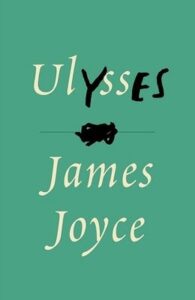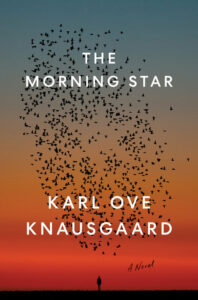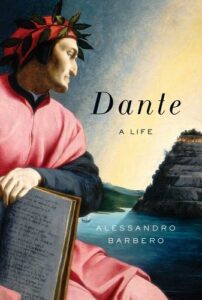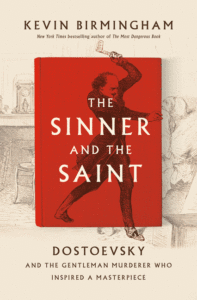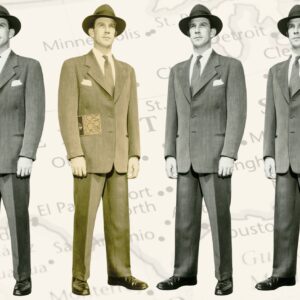
Lockwood on Knausgaard! And 4 Other Book Reviews You Need to Read This Week
Anne Enright on Ulysses, Geoff Dyer on Elizabeth Taylor, and more
Our basket of brilliant reviews this week includes Anne Enright on James Joyce’s Ulysses, Patricia Lockwood on Karl Ove Knausgaard’s The Morning Star, Geoff Dyer on Elizabeth Taylor’s Mrs Palfrey at the Claremont, Joseph Luzzi on Alessandro Barbero’s Dante: A Life, and Jennifer Wilson on Kevin Birmingham’s The Sinner and the Saint.
Brought to you by Book Marks, Lit Hub’s “Rotten Tomatoes for books.”
*
“I have felt it before, the same swooning sense of complexity, the same delicious struggle not to allow my own thoughts in. The attempt to make sense, fill in blanks, tell the real from the imagined, becomes tiring the way a profound conversation is tiring, when the subject is important but not clear. It is a kind of strenuous dreaming, very like writing fiction. Joyce has been in our brains, playing in the place where meaning is made, and this can feel disturbing or delightful. Something has been done to the act of reading itself. It seems as though he is inviting us to write his book for him, or with him, as we go along … The title may be taken from Homer’s great epic, but this is all very far from heroic. Unless the book itself is heroic; it keeps doing monumental things—outlandish, never previously attempted. The English language is regrown from its historical roots in the basement of a maternity hospital, the whole caboodle goes completely mad in a brothel. Bloom dusts himself and Stephen down, and the prose comes strenuously together in a great rhetorical to-and-fro until, at last, it runs easy and wild in the mind of Molly Bloom … Do you read Ulysses in an intellectual fashion? Does the challenge make you feel brilliant, pedantic, a little bit pretentious—does it make you feel, that is, like Stephen Dedalus? Or do you go with the flow, read feelingly, sensuously, let this gorgeous stuff work inside you as if you were Leopold Bloom, a man who pictures his penis floating in the bath as a languid floating flower? … If you ask me what Ulysses has to offer—despite the maleness of the text, despite the author’s perversion, despite the way it exists not on the page but in your reading of the page—the answer is still ‘Everything, everything, everything.’”
–Anne Enright on James Joyce’s Ulysses (The New York Review of Books)
“If you had never heard the name Karl Ove Knausgaard before, I might begin by telling you this: a Norwegian Bible translator has written a book about the end of the world. I might say he was a Christian, a man who once saw Jesus in the floorboards of his Swedish apartment; a writer who, in an essay about art, pondered the unmistakable image of Christ in a photo of a man’s scrotum. I could tell you that he’s scared of both snakes and genetically modified Red Delicious apples. It is another kind of narrative temptation, actually, to write about The Morning Star without ever mentioning that its author is one of the most endlessly disseminated writers of the age, a man whom most of us encountered staring back at us from the first volume of My Struggle like something both ancient and fresh: a stone-tablet model, a yassified Noah … As long as Knausgaard’s characters are simply thinking, we are in good hands, but as soon as they’re roused to act—to participate in the world around them—the reader is forced to climb with the author on the eternal staircase. This is precisely the punishment that lovers of Knausgaard’s work enjoy: to be locked into the step of life, to carry a coffee cup from the table to the sink in perpetuity … Is it good? I have no fucking idea. It is enormous, unwieldy, a hoarder’s house, full of sliced ham, possible to become obsessed with, one of those books where someone must write himself out of what he has made. Steel grows in the right hand as you read, to cut, cut, cut. But what balance would that disturb? If the sentences are not always interesting then the whole phenomenon is: the star, the weird Guinness Book decision even to do this, like walking on a tightrope not between skyscrapers but between the post office and the grocery store. Karl Ove gives us permission to step sideways from our own lives, become larger.”
–Patricia Lockwood on Karl Ove Knausgaard’s The Morning Star (London Review of Books)
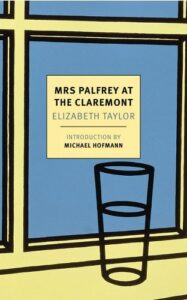
“Taylor became a perennial wallflower: a nice lady novelist of modest ambition and talent whose books, when you actually read them, are a revelation. And devastating … Having gulped down half of her dozen novels—none have disappointed—I find myself most awfully reluctant to read anyone else. Even as the reasons for Taylor’s undercooked reputation are adduced, it still seems hard to credit, given the quantity of quality she routinely dished up—unless consideration is given to a disturbing possibility: that the books being so easy to read actually worked to her detriment … Madness is always beckoning here—a repressed, specifically English variant that pinches the bunioned psyche like a shoe growing tighter by the day (especially as mores grow more relaxed elsewhere) … With Mrs Palfrey at the Claremont we’re in the strictly realist topography of ‘slimed pavements,’ minor related hazards and hazardous relatives. The primordial and the well-to-do are not just in close proximity but, as in Henry James, constantly merging … Taylor’s world is symbol-strewn but even under the most excruciating academic inquisition, all objects persist in the function for which they were intended, and heavy rain remains just another storm to be weathered. Possessed of the quality of total composure and attention—so that the whole is present in every part of a given book—Taylor was a novelist from the tips of her fingers to the depths of her brain … For too long the question was whether Taylor had been unreasonably excluded from a head count of the best fictional minds of her generation. The answer makes us pose another question, requiring further critical precision and refinement: Was there any better chronicler of English life as it unfolded in the 30-year period after the end of World War II?”
–Geoff Dyer on Elizabeth Taylor’s Mrs Palfrey at the Claremont (The New York Times Book Review)
“You have to pity Dante’s biographers. On the one hand, they face an archival abyss when it comes to the poet’s actual life, as even basic facts like the day he was born or the number of his children—let alone the chaotic itinerary of his two decades of exile—remain shrouded in mystery. On the other hand, the autobiographical details and dramas offered by Dante himself in numerous works, especially his epic The Divine Comedy, have mesmerized biographers beginning with Boccaccio for centuries, leading them down literary rabbit holes devoid of real-world certainty and inviting endless speculation that tends to burnish the legend of this ever-elusive subject. So the biographer must ultimately choose: Either hew to the evidence and ferret out whatever rare nugget about Dante’s life remains uncovered, or surrender to the genius of the work he called his ‘Comedìa’ and try to broker a fragile peace between literary interpretation and life writing … Ultimately, he seeks to avoid falling prey to the kind of Dante mania that seduced a biographer even as brilliant as Boccaccio into rhapsodic—and often entirely invented—musings on Dante, who Boccaccio claimed was sent by God ‘to clear the way for the return of the muses who had been banished from Italy’ … Yet Barbero’s sobriety comes at a cost…For a biography of Dante to capture the attention of an American readership, it has to address substantively the source that accounts for Dante’s foreign appeal: the words on his pages rather than the facts of his life.”
–Joseph Luzzi on Alessandro Barbero’s Dante: A Life (The New York Times Book Review)
“In the 1860s, to turn the pages of a periodical in Russia meant you were likely to get blood on your hands. Few people consumed these stories more voraciously than novelist (and ex-convict) Fyodor Dostoevsky … As he unspools the story of how Dostoevsky first encountered the villain Lacenaire, Birmingham places the author in a culture brimming with tales of criminal intrigue and moral transgression—some Dostoevsky had gathered from his time in a Siberian prison, but many he came across as a voracious consumer of what we might now call true crime. As such, Birmingham’s book reads mostly as a biography of Dostoevsky from his youth through the writing of the novel, one that traces how the author’s views on crime were forged between his time in prison for insurrection and his eventual release into a new literary scene that was—by his estimation—dangerously aestheticizing the kinds of criminals he had seen up close and in the mirror … In Crime and Punishment, Dostoevsky used the public’s appetite for crime stories as a kind of Trojan horse, a way to launch a polemic under the guise of titillation. Dostoevsky denies Raskolnikov the glamour of a martyr and presents him instead as an angry and confused young man, humiliated by poverty and acting out of shame. Or at least that is what he thought he had done. In something of a plot twist, following the success of Crime and Punishment, defense attorneys in nineteenth-century Russia began comparing their clients to Raskolnikov in an attempt to garner sympathy with the jury … he shows us that Dostoevsky is both the ‘sinner’ and the ‘saint,’ a repentant political criminal who wanted his characters to inspire not fervor but fear—of our worst instincts.”
–Jennifer Wilson on Kevin Birmingham’s The Sinner and the Saint: Dostoevsky and the Gentleman Murderer Who Inspired a Masterpiece (The New Republic)
Book Marks
Visit Book Marks, Lit Hub's home for book reviews, at https://bookmarks.reviews/ or on social media at @bookmarksreads.










